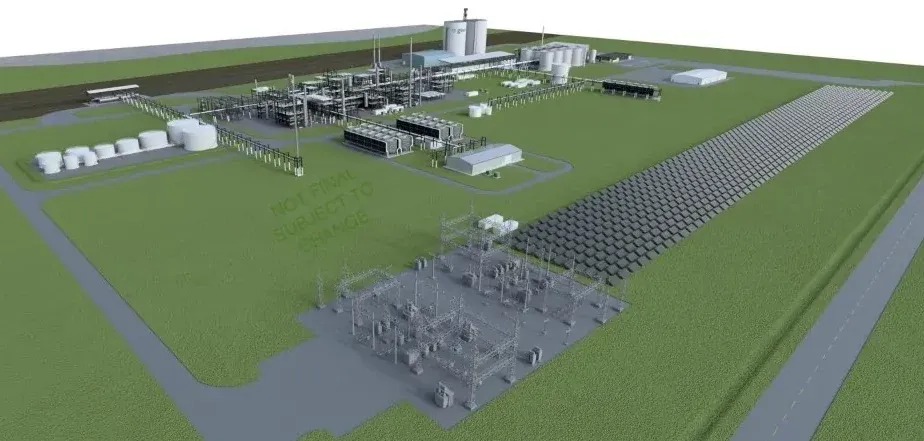
Oct 3, 2023 | Actions
Projects for burying carbon emissions are under pressure in the Midwest, spelling challenges ahead for massive infrastructure buildup. Oil and gas pipelines have been stymied for years by environmentalists and landowners. Now those groups are blocking CO2 pipelines too. In the Midwest, a coalition of environmental groups and farmers have teamed up to stop plans to erect thousands of miles of pipelines that would carry climate-warming carbon emissions to underground storage locations.
The projects are vital to President Biden’s plans to drastically curtail emissions, but the groups question their green credentials, safety and use of eminent domain to seize private property. Regulators in North and South Dakota recently rejected permit applications by developers after fierce local opposition, injecting uncertainty into the companies’ multibillion-dollar plans to shuttle and store CO2 deep under the surface. The roadblocks are reminiscent of those faced in recent years by proposed crude pipelines such as Keystone XL and the Dakota Access Pipeline.

Oct 3, 2023 | Actions
Critics question why project’s reliance on sequestration line didn’t come up before PUC rejection.
Without the Summit Carbon Solutions’ pipeline, what’s believed to be the largest capital investment in South Dakota’s history might not happen.
That was part of the message from Kent Hartwig, director of state government affairs with Gevo, at Tuesday’s Brown County Commission meeting at the courthouse annex.
Gevo is planning a plant near Lake Preston that would include an ethanol plant and a hydrocarbon plant that converts the ethanol into aviation jet fuel. The plant would be powered by an adjoining wind farm.
The ethanol-hydrocarbon plant is estimated to cost $850 million and the wind farm $150 million, for an overall investment of $1 billion. The wind farm would power the plant.

Oct 3, 2023 | Actions
SIOUX FALLS, S.D(KELO)- Summit Carbon Solutions plans to come back with another plan for a carbon capture pipeline in South Dakota..
Summit’s Chief Operating Officer Jimmy Powell talks about company officials began meeting with county commissioners last week, and he says they’ll be back at it again.
Powell says it’s a big task, because the Summit pipeline passes through 82 counties in five states.
It’s week two of what you could call the “Mea Culpa” tour for Summit Carbon Solutions.
The company was denied a permit to build a carbon capture pipeline through South Dakota.
The main reason — they said they couldn’t build it because of restrictive pipeline ordinances passed in some counties.
Now, Powell says they’re starting all over.

Sep 7, 2023 | Actions
Huron, S.D. – September 5 the South Dakota Public Utilities Commission (PUC) rejected Navigator CO2’s application for a permit to construct the Heartland Greenway carbon capture pipeline. The company’s request sought to disregard county pipeline setback ordinances. The PUC’s unanimous decision pointed to the company’s lack of transparency in disclosing carbon dioxide plume modeling and untimely notices to landowners. The project’s intended stretch of 110 miles would have traversed eastern South Dakota including the counties of Brookings, Moody, Minnehaha, Lincoln and Turner. Similar actions have been issued in North Dakota against the foreign backed private company Summit Carbon Solutions pipeline. The PUC will make a decision regarding Summit Pipelines permit at a hearing scheduled for Monday, September 11.

Aug 25, 2023 | Actions
The Public Utilities Commission will decide at a later date whether it will overrule county zoning officials on behalf of a carbon pipeline company.
Friday marked the second day of a two-day hearing in Pierre on the question of county authority, brought by Navigator CO2 Ventures, the company behind one of two proposed carbon pipelines that might pass through South Dakota.
Navigator wants commissioners to shoot down county-level restrictions on pipeline construction its representatives say are untenable. On the first day, a Navigator official named Monica Howard said the rules in Minnehaha and Moody counties represent uniquely targeted attempts to scuttle pipeline projects that backers see as critical to the future of the Midwest’s ethanol industry. Howard testified that the county ordinances amount to 11th-hour rule changes to the permitting process.





